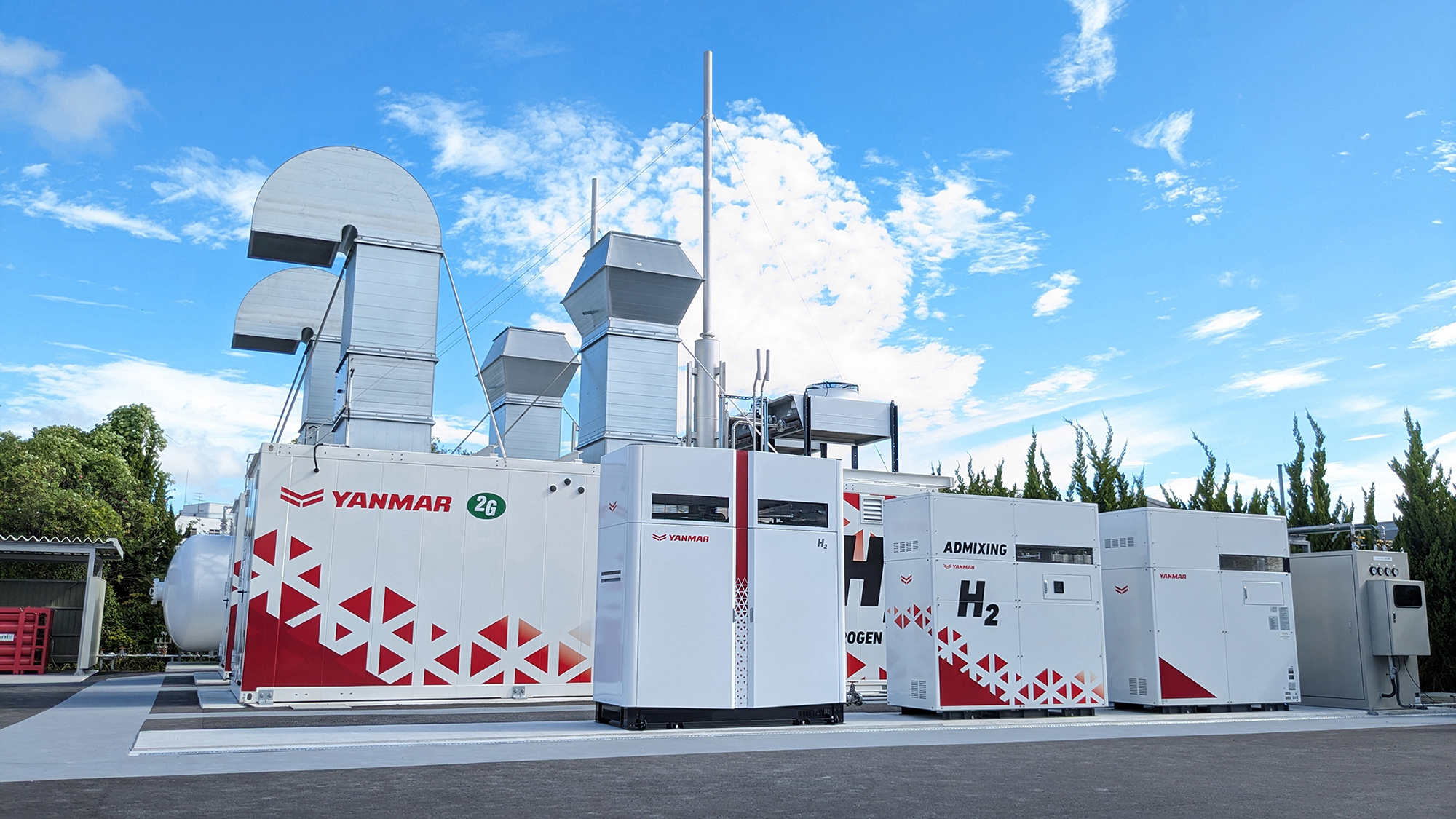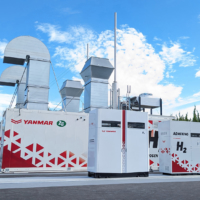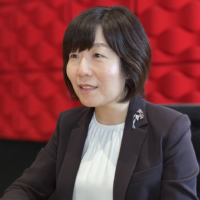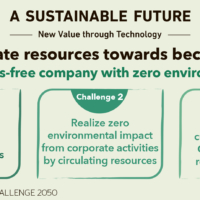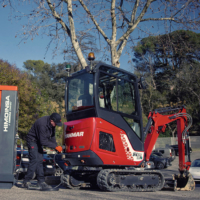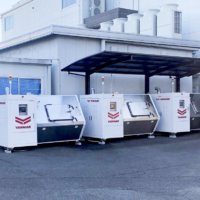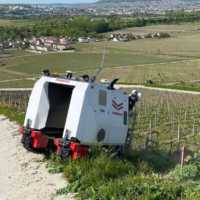Yanmar was established in 1912 by Magokichi Yamaoka, who was driven by a mission to ease the burdens faced by farmers. At a time when the rising demand for food was making manual labor increasingly challenging for the agriculture industry, Yamaoka was determined to modernize crop production. His vision led to the development of Yanmar’s compact and efficient diesel engine, a groundbreaking innovation that transformed farming practices.
Even as times have changed, Yanmar has stayed committed to its core mission of serving people by providing solutions that address societal needs. Now, over 110 years since the machinery maker’s founding, the global demand for sustainable solutions continues to grow.
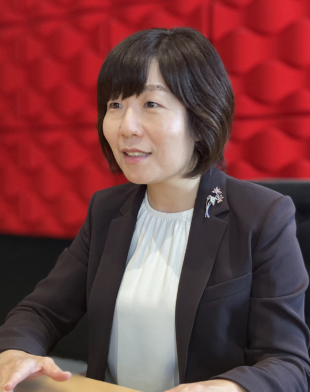
In line with its brand statement, “A Sustainable Future — New Value through Technology,” Yanmar believes a new form of prosperity emerges when both nature and humanity thrive together. By deeply considering customers’ needs and creating unexpected new value, Yanmar endeavors to provide solutions and contribute to the creation of a more prosperous society. To enhance the efforts being made by the entire group, the company has established the Sustainability Promotion Division. This division is led by Mariko Shirafuji, who was appointed to the new position of chief sustainability officer in July.
Prior to this post, Shirafuji served as the representative director of Yanmar Symbiosis Co., a company that employs individuals with disabilities through a range of business activities, including a farm with activities for tourists, cleaning services and back-office support for other group companies. She has also been instrumental in promoting diversity and inclusion based on the company’s founding concept of hanasaka (blooming flowers), which represents the root of the founder’s spirit and vision of believing in people’s potential and encouraging them to take on challenges.
“Our brand statement emphasizes creating value that enhances people’s lives while protecting nature,” Shirafuji said. The Yanmar Green Challenge 2050 initiative, launched in 2022, serves as a road map for this vision.
Consisting of three focused “challenges,” the company has been following the road map by taking concrete steps and practical measures to drive progress toward the 2050 goal.
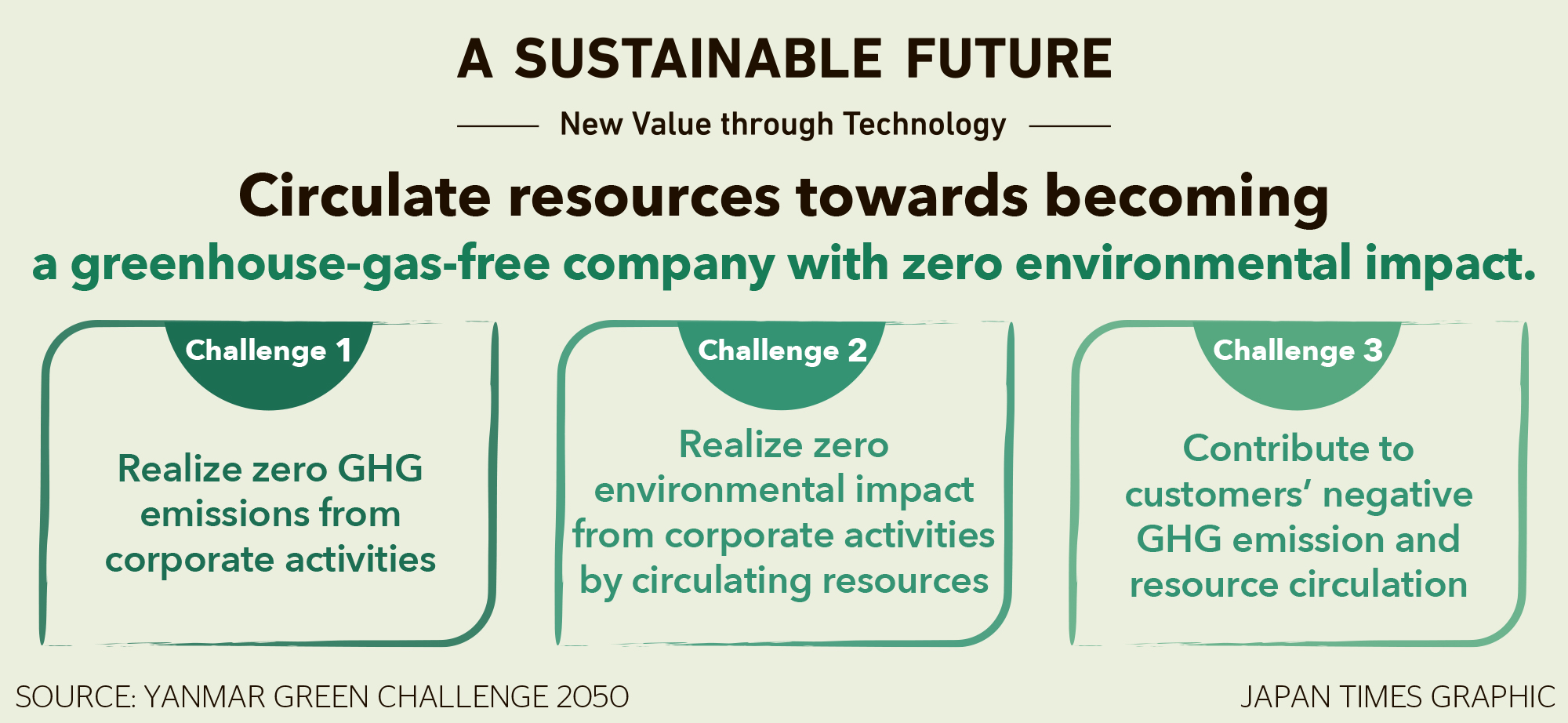
Challenge 1 focuses on reducing greenhouse gas emissions across the company’s entire value chain to contribute to achieving carbon neutrality by 2050. About 90% of the company’s total emissions result from the use of its products. To address this, the company has been working to improve the efficiency of its products while maintaining user convenience. It has developed a wide range of products and prototypes, including new types of engines for alternative fuels and fuel cell systems, as well as agricultural and construction machinery that runs on a variety of eco-friendly energies.
“In Europe, we have developed three models of compact, battery-powered construction equipment,” Shirafuji said.
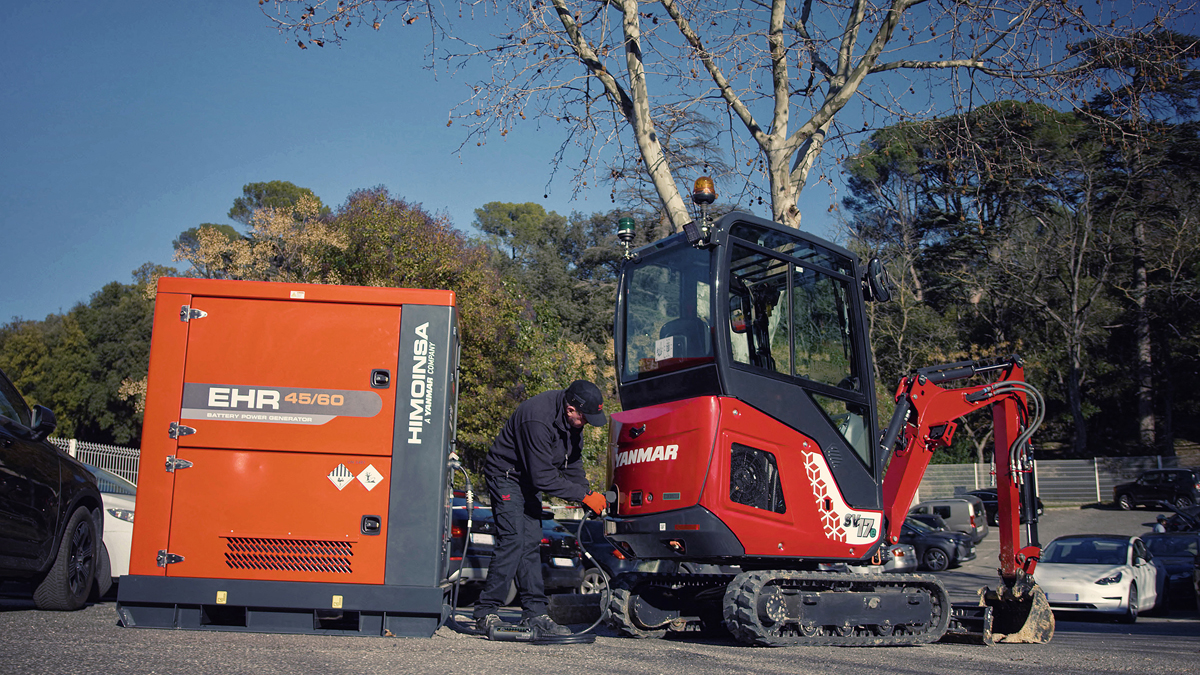
In August 2023, the company supplied its newly commercialized maritime hydrogen fuel cell system to the passenger ship Hanaria that operates out of Kyushu. This is Japan’s first hybrid passenger ship with an electric propulsion system based on hydrogen and biodiesel.
It has an integrated power system developed by Yanmar that consists of batteries, biodiesel generators, two fuel cells, a power management system, propulsion equipment, remote monitoring and other features. The ship is capable of achieving zero emissions when operating on the fuel cells and batteries.
“The elimination of exhaust gas odors and the reduction of vibration and noise levels make the system particularly well-suited for passenger ships,” Shirafuji said.
For larger vessels, the company is developing engines powered by hydrogen, methanol, ammonia and other alternative fuels.
In September 2023, the company established the Yanmar Clean Energy Site, a demonstration facility for hydrogen power systems and other technologies that contribute to decarbonization. It is equipped with clean-energy devices centered around hydrogen systems and will continue to facilitate research and development in this field.
Challenge 2 is to achieve zero environmental impact from corporate activities. The company aims to approach this from various angles, such as by reducing waste volume and water usage, minimizing the use and discharge of hazardous substances in all corporate processes, and achieving a circular economy for its products.
The company has been working to reduce its environmental impact while tackling challenges within its factories. For instance, certain plants have implemented specialized racks to secure parts during transport, significantly reducing the need for packing materials, saving space and lowering disposal costs. Additionally, to conserve water, some facilities have introduced water-saving faucets and use collected rainwater for irrigation.
Challenge 3 entails the provision of solutions that assist customers in achieving negative greenhouse gas emissions and the circulation of resources in their business activities. These new solutions go beyond the framework of conventional corporate activities.
Group company Yanmar Energy System Co. has developed a system that creates biochar from rice husks. Disposal of the enormous quantity of rice husks generated following annual harvests has long been a challenge for rice farmers.
“Discarded rice husks can generate methane gas and other gases that have a stronger greenhouse effect than carbon dioxide,” Shirafuji explained. The system can produce biochar, which is expected to improve soil quality without adding harmful substances. The biochar is returned to the farms, thereby reducing greenhouse gases generated from rice farming.
The company also offers a wide range of solutions aimed at conserving and restoring the natural environment through food production.
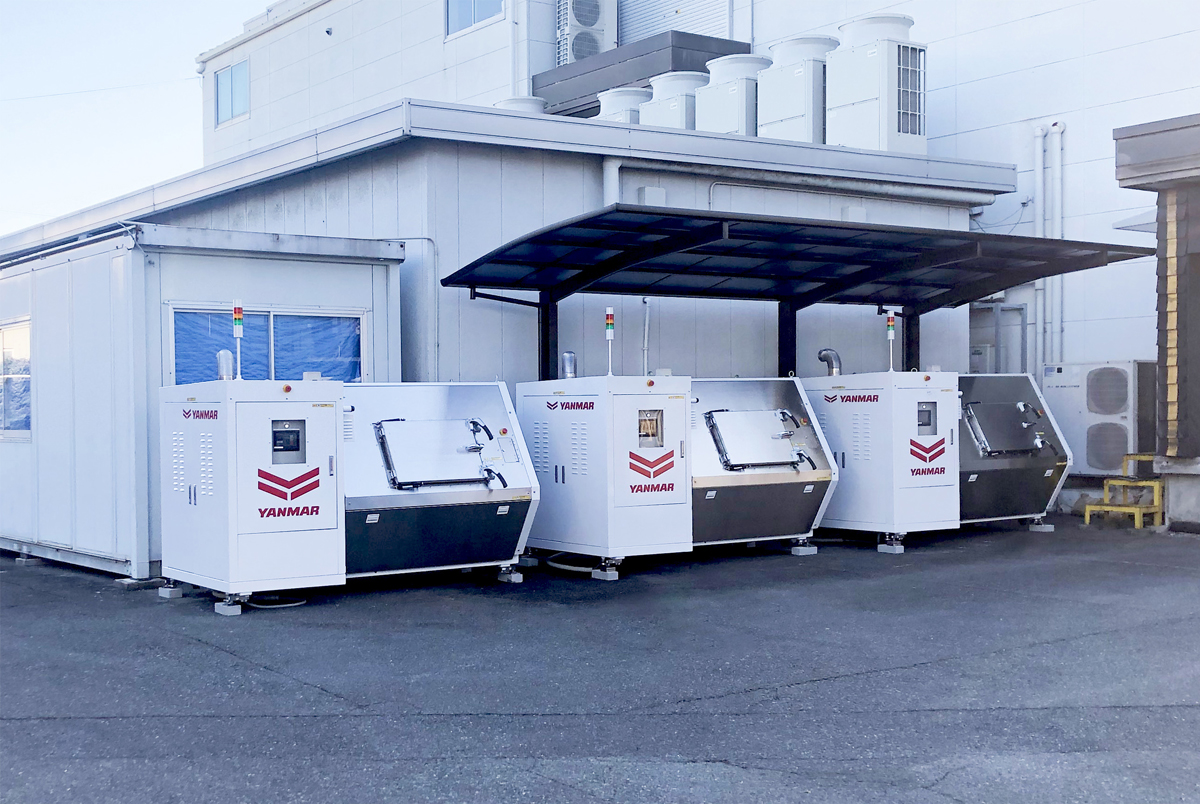
“The YC100 biocomposter is designed to decompose crop residue and food waste into fertilizers. It is currently used by municipalities, golf courses, shopping malls and restaurants,” Shirafuji said, noting that the fertilizer is either used to grow crops or distributed to farmers in the neighborhood. The biomass gasification system employs a similar method to convert crop residue and food waste into reusable energy.
The company is also engaged in international initiatives aimed at promoting the sustainability of agriculture. It has entered into an agreement with Faeger Corp., a Japanese company specializing in the creation and sale of agricultural carbon credits, in a bid to reduce methane emissions from rice paddies in the Philippines using the water management method known as “alternate wetting and drying.” By periodically drying the rice paddies and supplying oxygen to the soil, it can inhibit the activity of methane-producing bacteria. This process also reduces the generation of methane, one of the most powerful greenhouse gases.
The results of these efforts will be converted to carbon credits under the Joint Crediting Mechanism, a system that Japan’s farm ministry is promoting to members of the Association of Southeast Asian Nations.
The company carried out demonstrations in November with the objective of advancing decarbonization and contributing to developing economies on a broader scale.
Another example of the company’s commitment to sustainable agriculture on a global scale is its newly developed autonomous YV01 spraying robot. The YV01 has been specifically designed for use in vineyards, which are often on steep slopes, making maintenance and cultivation dangerous and time-consuming.
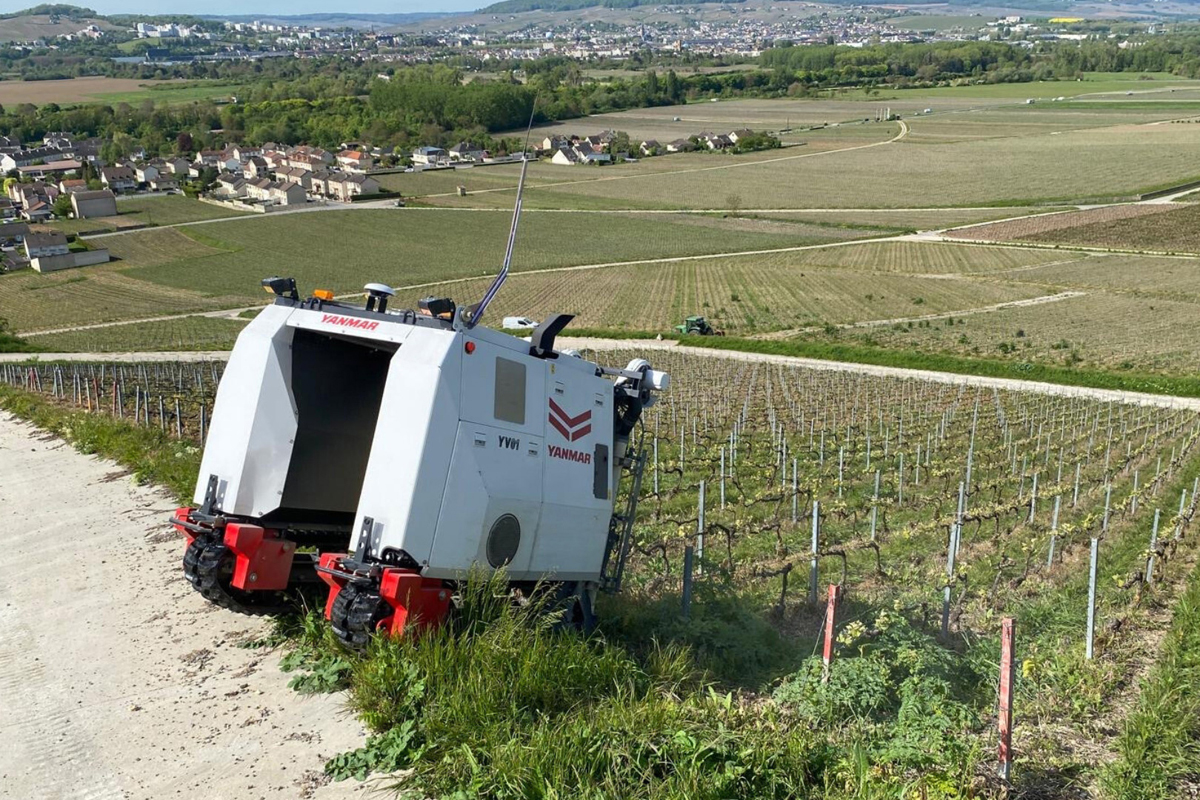
“The robot is capable of crawling on steep hills via remote manipulation, ensuring precise and targeted application of agricultural chemicals,” Shirafuji said. This can reduce the overall volume used, which will lessen the environmental and health impacts while increasing efficiency and productivity.
“The YV01 has already been deployed mainly in vineyards in France,” she said.
In 2022, the company launched an internal competition to identify new and inspiring ideas from employees.
“This initiative exemplifies our company’s founding spirit of hanasaka, which reflects our dedication to fostering human potential and motivating individuals to embrace new challenges. We look forward to working with our employees, communities and partners to address various challenges and create a sustainable society,” Shirafuji said.



